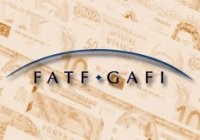-

02 March, 2009
EAG was represented by EAG Deputy Chairman Valery Yaroshevsky and the EAG Secretariat members.
The FATF Plenary discussion was centered on aspects of the global financial crisis impact on the effectiveness of the international AML/CFT system, combating terrorist financing, and problems of international cooperation with countries on the FATF watch list.
In this connection the participants discussed the situation in countries and territories that may pose a risk of the international financial system being used for money laundering and terrorist financing. Besides Iran, Pakistan, San Tome and Principe, such jurisdictions included Uzbekistan and Turkmenistan – an EAG member and observer, respectively.
With the backing of the Russian delegation, EAG representatives succeeded in persuading FATF not to impose sanctions against Uzbekistan and Turkmenistan.
The FATF Plenary pointed out Uzbekistan’s progress in restoring the national AML/CFT system. A positive assessment was made of the country’s steps toward implementing the plan to restore and improve the national AML/CFT system adopted by the Uzbekistani Prime Minister. Efforts to improve AML/CFT legislation and bring it into line with international standards were praised.
The FATF Plenary pointed out that Turkmenistan is also implementing initiatives to introduce a national AML/CFT system. However, the steps undertaken by Uzbekistan and Turkmenistan to date are not sufficient to remove these countries from the watch list.
In a public statement, FATF recommended that Uzbekistan and Turkmenistan take the steps needed to bring their national AML/CFT systems into line with international standards by the next Plenary slated for June 2009.
Also held as part of the FATF Plenary were working meetings of the heads of the Chinese and Russian delegations, during which a decision was made to continue a constructive dialog between the financial intelligence units of the two EAG member states. Promising areas of cooperation include issues of financial security in terms of controlling cash transactions and transfers of noncommercial nature, issues of cross-border trade and preventing the spread of proceeds from drug trafficking.
The FATF President spoke favorably of the growing role of FATF-style regional bodies, in particular the Eurasian Group, in terms of their interaction with the private sector in the conditions of financial volatility. It will be recalled that the 9th EAG Plenary held in December 2008 in Moscow worked our recommendations for the financial community of the Eurasian region in terms of tracking cross-border financial flows and monitoring the risks of the spreading alternative money transfer methods.
The FATF Plenary pointed out the constructive position and active role of EAG in implementing the current and new FATF projects.

 Login to your account
Login to your account Eng
Eng Рус
Рус